Solvent
Chemical Intermediate
Reagent
Pharmaceuticals
Agriculture
Electronics
Textiles
Anhydrous
Hydrous
Direct Sales
Distributors
Online Sales
North America
Europe
South America
Asia Pacific
Middle East and Africa
North America Outlook (USD Billion, 2019-2032)
North America Dimethylformamide Market by Application Type
Solvent
Chemical Intermediate
Reagent
North America Dimethylformamide Market by End Use Industry Type
Pharmaceuticals
Agriculture
Electronics
Textiles
North America Dimethylformamide Market by Formulation Type
Anhydrous
Hydrous
North America Dimethylformamide Market by Distribution Channel Type
Direct Sales
Distributors
Online Sales
North America Dimethylformamide Market by Regional Type
US
Canada
US Outlook (USD Billion, 2019-2032)
US Dimethylformamide Market by Application Type
Solvent
Chemical Intermediate
Reagent
US Dimethylformamide Market by End Use Industry Type
Pharmaceuticals
Agriculture
Electronics
Textiles
US Dimethylformamide Market by Formulation Type
Anhydrous
Hydrous
US Dimethylformamide Market by Distribution Channel Type
Direct Sales
Distributors
Online Sales
CANADA Outlook (USD Billion, 2019-2032)
CANADA Dimethylformamide Market by Application Type
Solvent
Chemical Intermediate
Reagent
CANADA Dimethylformamide Market by End Use Industry Type
Pharmaceuticals
Agriculture
Electronics
Textiles
CANADA Dimethylformamide Market by Formulation Type
Anhydrous
Hydrous
CANADA Dimethylformamide Market by Distribution Channel Type
Direct Sales
Distributors
Online Sales
Europe Outlook (USD Billion, 2019-2032)
Europe Dimethylformamide Market by Application Type
Solvent
Chemical Intermediate
Reagent
Europe Dimethylformamide Market by End Use Industry Type
Pharmaceuticals
Agriculture
Electronics
Textiles
Europe Dimethylformamide Market by Formulation Type
Anhydrous
Hydrous
Europe Dimethylformamide Market by Distribution Channel Type
Direct Sales
Distributors
Online Sales
Europe Dimethylformamide Market by Regional Type
Germany
UK
France
Russia
Italy
Spain
Rest of Europe
GERMANY Outlook (USD Billion, 2019-2032)
GERMANY Dimethylformamide Market by Application Type
Solvent
Chemical Intermediate
Reagent
GERMANY Dimethylformamide Market by End Use Industry Type
Pharmaceuticals
Agriculture
Electronics
Textiles
GERMANY Dimethylformamide Market by Formulation Type
Anhydrous
Hydrous
GERMANY Dimethylformamide Market by Distribution Channel Type
Direct Sales
Distributors
Online Sales
UK Outlook (USD Billion, 2019-2032)
UK Dimethylformamide Market by Application Type
Solvent
Chemical Intermediate
Reagent
UK Dimethylformamide Market by End Use Industry Type
Pharmaceuticals
Agriculture
Electronics
Textiles
UK Dimethylformamide Market by Formulation Type
Anhydrous
Hydrous
UK Dimethylformamide Market by Distribution Channel Type
Direct Sales
Distributors
Online Sales
FRANCE Outlook (USD Billion, 2019-2032)
FRANCE Dimethylformamide Market by Application Type
Solvent
Chemical Intermediate
Reagent
FRANCE Dimethylformamide Market by End Use Industry Type
Pharmaceuticals
Agriculture
Electronics
Textiles
FRANCE Dimethylformamide Market by Formulation Type
Anhydrous
Hydrous
FRANCE Dimethylformamide Market by Distribution Channel Type
Direct Sales
Distributors
Online Sales
RUSSIA Outlook (USD Billion, 2019-2032)
RUSSIA Dimethylformamide Market by Application Type
Solvent
Chemical Intermediate
Reagent
RUSSIA Dimethylformamide Market by End Use Industry Type
Pharmaceuticals
Agriculture
Electronics
Textiles
RUSSIA Dimethylformamide Market by Formulation Type
Anhydrous
Hydrous
RUSSIA Dimethylformamide Market by Distribution Channel Type
Direct Sales
Distributors
Online Sales
ITALY Outlook (USD Billion, 2019-2032)
ITALY Dimethylformamide Market by Application Type
Solvent
Chemical Intermediate
Reagent
ITALY Dimethylformamide Market by End Use Industry Type
Pharmaceuticals
Agriculture
Electronics
Textiles
ITALY Dimethylformamide Market by Formulation Type
Anhydrous
Hydrous
ITALY Dimethylformamide Market by Distribution Channel Type
Direct Sales
Distributors
Online Sales
SPAIN Outlook (USD Billion, 2019-2032)
SPAIN Dimethylformamide Market by Application Type
Solvent
Chemical Intermediate
Reagent
SPAIN Dimethylformamide Market by End Use Industry Type
Pharmaceuticals
Agriculture
Electronics
Textiles
SPAIN Dimethylformamide Market by Formulation Type
Anhydrous
Hydrous
SPAIN Dimethylformamide Market by Distribution Channel Type
Direct Sales
Distributors
Online Sales
REST OF EUROPE Outlook (USD Billion, 2019-2032)
REST OF EUROPE Dimethylformamide Market by Application Type
Solvent
Chemical Intermediate
Reagent
REST OF EUROPE Dimethylformamide Market by End Use Industry Type
Pharmaceuticals
Agriculture
Electronics
Textiles
REST OF EUROPE Dimethylformamide Market by Formulation Type
Anhydrous
Hydrous
REST OF EUROPE Dimethylformamide Market by Distribution Channel Type
Direct Sales
Distributors
Online Sales
APAC Outlook (USD Billion, 2019-2032)
APAC Dimethylformamide Market by Application Type
Solvent
Chemical Intermediate
Reagent
APAC Dimethylformamide Market by End Use Industry Type
Pharmaceuticals
Agriculture
Electronics
Textiles
APAC Dimethylformamide Market by Formulation Type
Anhydrous
Hydrous
APAC Dimethylformamide Market by Distribution Channel Type
Direct Sales
Distributors
Online Sales
APAC Dimethylformamide Market by Regional Type
China
India
Japan
South Korea
Malaysia
Thailand
Indonesia
Rest of APAC
CHINA Outlook (USD Billion, 2019-2032)
CHINA Dimethylformamide Market by Application Type
Solvent
Chemical Intermediate
Reagent
CHINA Dimethylformamide Market by End Use Industry Type
Pharmaceuticals
Agriculture
Electronics
Textiles
CHINA Dimethylformamide Market by Formulation Type
Anhydrous
Hydrous
CHINA Dimethylformamide Market by Distribution Channel Type
Direct Sales
Distributors
Online Sales
INDIA Outlook (USD Billion, 2019-2032)
INDIA Dimethylformamide Market by Application Type
Solvent
Chemical Intermediate
Reagent
INDIA Dimethylformamide Market by End Use Industry Type
Pharmaceuticals
Agriculture
Electronics
Textiles
INDIA Dimethylformamide Market by Formulation Type
Anhydrous
Hydrous
INDIA Dimethylformamide Market by Distribution Channel Type
Direct Sales
Distributors
Online Sales
JAPAN Outlook (USD Billion, 2019-2032)
JAPAN Dimethylformamide Market by Application Type
Solvent
Chemical Intermediate
Reagent
JAPAN Dimethylformamide Market by End Use Industry Type
Pharmaceuticals
Agriculture
Electronics
Textiles
JAPAN Dimethylformamide Market by Formulation Type
Anhydrous
Hydrous
JAPAN Dimethylformamide Market by Distribution Channel Type
Direct Sales
Distributors
Online Sales
SOUTH KOREA Outlook (USD Billion, 2019-2032)
SOUTH KOREA Dimethylformamide Market by Application Type
Solvent
Chemical Intermediate
Reagent
SOUTH KOREA Dimethylformamide Market by End Use Industry Type
Pharmaceuticals
Agriculture
Electronics
Textiles
SOUTH KOREA Dimethylformamide Market by Formulation Type
Anhydrous
Hydrous
SOUTH KOREA Dimethylformamide Market by Distribution Channel Type
Direct Sales
Distributors
Online Sales
MALAYSIA Outlook (USD Billion, 2019-2032)
MALAYSIA Dimethylformamide Market by Application Type
Solvent
Chemical Intermediate
Reagent
MALAYSIA Dimethylformamide Market by End Use Industry Type
Pharmaceuticals
Agriculture
Electronics
Textiles
MALAYSIA Dimethylformamide Market by Formulation Type
Anhydrous
Hydrous
MALAYSIA Dimethylformamide Market by Distribution Channel Type
Direct Sales
Distributors
Online Sales
THAILAND Outlook (USD Billion, 2019-2032)
THAILAND Dimethylformamide Market by Application Type
Solvent
Chemical Intermediate
Reagent
THAILAND Dimethylformamide Market by End Use Industry Type
Pharmaceuticals
Agriculture
Electronics
Textiles
THAILAND Dimethylformamide Market by Formulation Type
Anhydrous
Hydrous
THAILAND Dimethylformamide Market by Distribution Channel Type
Direct Sales
Distributors
Online Sales
INDONESIA Outlook (USD Billion, 2019-2032)
INDONESIA Dimethylformamide Market by Application Type
Solvent
Chemical Intermediate
Reagent
INDONESIA Dimethylformamide Market by End Use Industry Type
Pharmaceuticals
Agriculture
Electronics
Textiles
INDONESIA Dimethylformamide Market by Formulation Type
Anhydrous
Hydrous
INDONESIA Dimethylformamide Market by Distribution Channel Type
Direct Sales
Distributors
Online Sales
REST OF APAC Outlook (USD Billion, 2019-2032)
REST OF APAC Dimethylformamide Market by Application Type
Solvent
Chemical Intermediate
Reagent
REST OF APAC Dimethylformamide Market by End Use Industry Type
Pharmaceuticals
Agriculture
Electronics
Textiles
REST OF APAC Dimethylformamide Market by Formulation Type
Anhydrous
Hydrous
REST OF APAC Dimethylformamide Market by Distribution Channel Type
Direct Sales
Distributors
Online Sales
South America Outlook (USD Billion, 2019-2032)
South America Dimethylformamide Market by Application Type
Solvent
Chemical Intermediate
Reagent
South America Dimethylformamide Market by End Use Industry Type
Pharmaceuticals
Agriculture
Electronics
Textiles
South America Dimethylformamide Market by Formulation Type
Anhydrous
Hydrous
South America Dimethylformamide Market by Distribution Channel Type
Direct Sales
Distributors
Online Sales
South America Dimethylformamide Market by Regional Type
Brazil
Mexico
Argentina
Rest of South America
BRAZIL Outlook (USD Billion, 2019-2032)
BRAZIL Dimethylformamide Market by Application Type
Solvent
Chemical Intermediate
Reagent
BRAZIL Dimethylformamide Market by End Use Industry Type
Pharmaceuticals
Agriculture
Electronics
Textiles
BRAZIL Dimethylformamide Market by Formulation Type
Anhydrous
Hydrous
BRAZIL Dimethylformamide Market by Distribution Channel Type
Direct Sales
Distributors
Online Sales
MEXICO Outlook (USD Billion, 2019-2032)
MEXICO Dimethylformamide Market by Application Type
Solvent
Chemical Intermediate
Reagent
MEXICO Dimethylformamide Market by End Use Industry Type
Pharmaceuticals
Agriculture
Electronics
Textiles
MEXICO Dimethylformamide Market by Formulation Type
Anhydrous
Hydrous
MEXICO Dimethylformamide Market by Distribution Channel Type
Direct Sales
Distributors
Online Sales
ARGENTINA Outlook (USD Billion, 2019-2032)
ARGENTINA Dimethylformamide Market by Application Type
Solvent
Chemical Intermediate
Reagent
ARGENTINA Dimethylformamide Market by End Use Industry Type
Pharmaceuticals
Agriculture
Electronics
Textiles
ARGENTINA Dimethylformamide Market by Formulation Type
Anhydrous
Hydrous
ARGENTINA Dimethylformamide Market by Distribution Channel Type
Direct Sales
Distributors
Online Sales
REST OF SOUTH AMERICA Outlook (USD Billion, 2019-2032)
REST OF SOUTH AMERICA Dimethylformamide Market by Application Type
Solvent
Chemical Intermediate
Reagent
REST OF SOUTH AMERICA Dimethylformamide Market by End Use Industry Type
Pharmaceuticals
Agriculture
Electronics
Textiles
REST OF SOUTH AMERICA Dimethylformamide Market by Formulation Type
Anhydrous
Hydrous
REST OF SOUTH AMERICA Dimethylformamide Market by Distribution Channel Type
Direct Sales
Distributors
Online Sales
MEA Outlook (USD Billion, 2019-2032)
MEA Dimethylformamide Market by Application Type
Solvent
Chemical Intermediate
Reagent
MEA Dimethylformamide Market by End Use Industry Type
Pharmaceuticals
Agriculture
Electronics
Textiles
MEA Dimethylformamide Market by Formulation Type
Anhydrous
Hydrous
MEA Dimethylformamide Market by Distribution Channel Type
Direct Sales
Distributors
Online Sales
MEA Dimethylformamide Market by Regional Type
GCC Countries
South Africa
Rest of MEA
GCC COUNTRIES Outlook (USD Billion, 2019-2032)
GCC COUNTRIES Dimethylformamide Market by Application Type
Solvent
Chemical Intermediate
Reagent
GCC COUNTRIES Dimethylformamide Market by End Use Industry Type
Pharmaceuticals
Agriculture
Electronics
Textiles
GCC COUNTRIES Dimethylformamide Market by Formulation Type
Anhydrous
Hydrous
GCC COUNTRIES Dimethylformamide Market by Distribution Channel Type
Direct Sales
Distributors
Online Sales
SOUTH AFRICA Outlook (USD Billion, 2019-2032)
SOUTH AFRICA Dimethylformamide Market by Application Type
Solvent
Chemical Intermediate
Reagent
SOUTH AFRICA Dimethylformamide Market by End Use Industry Type
Pharmaceuticals
Agriculture
Electronics
Textiles
SOUTH AFRICA Dimethylformamide Market by Formulation Type
Anhydrous
Hydrous
SOUTH AFRICA Dimethylformamide Market by Distribution Channel Type
Direct Sales
Distributors
Online Sales
REST OF MEA Outlook (USD Billion, 2019-2032)
REST OF MEA Dimethylformamide Market by Application Type
Solvent
Chemical Intermediate
Reagent
REST OF MEA Dimethylformamide Market by End Use Industry Type
Pharmaceuticals
Agriculture
Electronics
Textiles
REST OF MEA Dimethylformamide Market by Formulation Type
Anhydrous
Hydrous
REST OF MEA Dimethylformamide Market by Distribution Channel Type
Direct Sales
Distributors
Online Sales


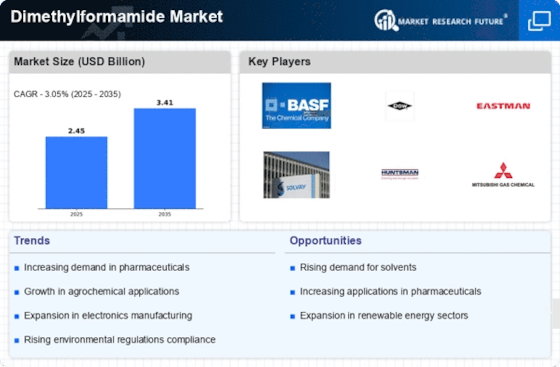

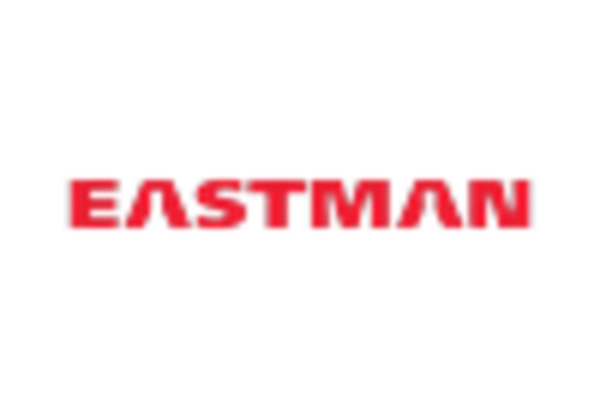

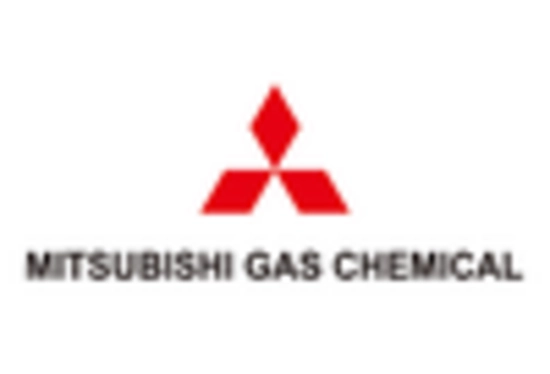
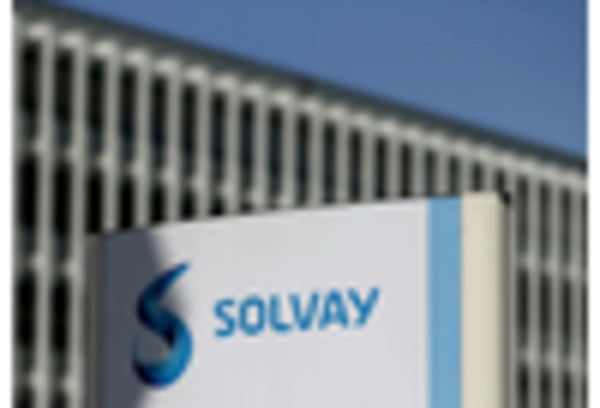
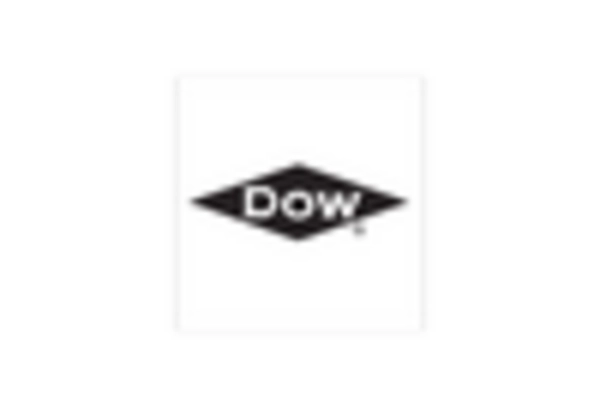









Leave a Comment